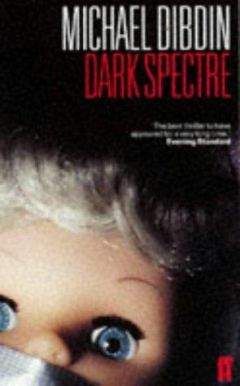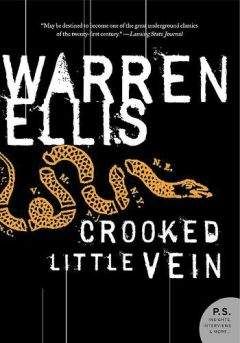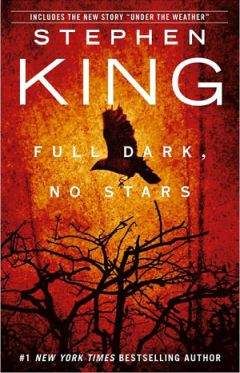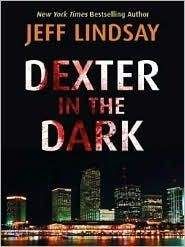Michael Dibdin - Dark Specter

Скачивание начинается... Если скачивание не началось автоматически, пожалуйста нажмите на эту ссылку.
Жалоба
Напишите нам, и мы в срочном порядке примем меры.
Описание книги "Dark Specter"
Описание и краткое содержание "Dark Specter" читать бесплатно онлайн.
“Let’s go back to the killing,” said Warren. “You said your old lady started badmouthing you so you shot her.”
Sullivan nodded.
“So you two were just sitting there …”
He broke off.
“Sitting? Standing?”
Sullivan shook his head.
“I don’t know. Standing, I guess.”
“You were standing there chatting, and she said something you didn’t like. It was an impulse thing, right?”
“Right.”
“You didn’t tie her up first, anything like that?”
“Why would I do that?” said Sullivan with a puzzled look.
“And the kids?” demanded Kristine, keeping up the pressure. “How did you kill them?”
Wayne Sullivan flinched visibly. He didn’t mind discussing his wife’s death, but his children were another matter.
“Same way,” he replied shortly.
“What about the Chinese boy? You said your own children would have had no one to look after them, but Ronnie Ho had a family. Why did he have to die too?”
Sullivan shrugged.
“I guess I kind of got carried away.”
“What time did all this happen?”
“Sometime in the afternoon.”
“When we first questioned you, you said you’d been painting an apartment in Bellevue all day.”
“That’s right!” Sullivan exclaimed indignantly.
Kristine Kjarstad nodded.
“We checked into that, and we found a witness who saw you at the apartment block shortly after two that afternoon, just after the bodies were discovered. That’s a twenty-minute drive from Renton. There’s no way you could have got back in time.”
She glanced quickly at Steve Warren, who seemed to be about to protest. Leading questions about the type of gun used were one thing, inventing nonexistent witnesses another. She gave her partner a hard look.
“I did it earlier,” Sullivan said at last.
Kristine Kjarstad nodded helpfully.
“How much earlier?”
“On my lunch break. I didn’t want the boss coming by and finding I wasn’t at work. It’s tough to get jobs these days.”
He looked up at Kristine, as though to confirm the clinching effect of this down-to-earth detail.
“So what time would that have been?” she asked.
Sullivan considered.
“Between twelve and one, maybe.”
“And you were back at work by one?”
Sullivan nodded.
“How do you know?”
“I was listening to the radio while I got the paint ready. Thought there might be something about it on the news.”
Kristine Kjarstad was silent.
“What’s the deal here, anyway?” Sullivan demanded with a touch of anger. “I told you I did it! That’s all that matters.”
He was clearly aggrieved at the way he was being treated. He had voluntarily confessed to the murders, thereby saving the police a whole lot of trouble, and what happened? They started fussing over details and looking for discrepancies, just as though it was his innocence he was trying to establish, not his guilt! Why didn’t they just book him and be done with it?
Kristine Kjarstad would have been only too happy to oblige, if she’d thought she could take the case to the DA’s office with the slightest chance of success. Unfortunately that was out of the question. Wayne Sullivan’s spirit might be willing, but his story was weak. The chronology he’d come up with to accommodate the imaginary witness who’d seen him at Bellevue shortly after two o’clock was the final blow. Before she was shot, Mrs. Sullivan had left a message on her friend Kelly Shelden’s voice mail. Like all such messages, it had been dated and timed, proving beyond doubt that Dawn Sullivan had been alive at seventeen minutes past one that afternoon. If Wayne was at work by one o’clock, there was no way he could have killed her.
Over the next two days, Kjarstad and Warren, working in relays with Harrison and Borg, took Wayne Sullivan’s story to pieces like kids disassembling a junked appliance. It was hard work. Sullivan had clearly hated his wife’s guts and resented her influence over the children, particularly the two boys. He was also grieving in a mute, inarticulate way for their deaths, and feeling guilty for having left them alone and defenseless. The scenario he had invented satisfied and explained all these emotions, as well as casting him as a star player instead of a weak, ineffectual onlooker in his own tragedy. It took a long time-much longer than it would have done if he had been guilty-to break him down and force him to admit that his confession was false.
With Wayne Sullivan’s release, the investigation had to start all over again from scratch. But in the absence of any other leads, the case was in practice relegated to inactive status. In most homicides the perpetrator is arrested within hours of the crime, often at the scene. At the very least his identity is established, and it is just a matter of waiting until he is picked up. Intensive, time-consuming investigations of cases where there is no known suspect are simply not cost-effective.
Kristine Kjarstad had gleaned only one additional piece of information since then. A month after the shootings, Jamie Sullivan and his sister Megan moved to Nebraska to live with their maternal aunt. Before they left, Kristine spoke with the boy. By now he had recovered, as much as he ever would, from the shock of what had happened. It had become a story, and Jamie no longer had any problems talking about it. He confirmed to Kristine Kjarstad the account which had been passed on earlier by the social worker, and added one further detail: the man who had come down to the basement of the house that day had been wearing a pair of expensive athletic shoes. He had even been able to identify the model, the Nike Air Jordan.
6
I made a vow never to let chance interfere in my arrangements again. My presumption was punished, as it seemed, in the most terrible way.
One day in early spring, three or four months after my meeting with Sam, our son, David, came back from school with an invitation to a birthday party in his lunchbox. A bunch of the kids in his class were going, he told us, displaying the card decorated with red and blue balloons and a clown’s exaggerated rictus.
Like many only children, David found socializing problematic, alternating between bouts of bossy domination and moody withdrawal. Rachael and I were the more disturbed by this because we knew that he was not going to have any siblings. Her second pregnancy had been terminated as a result of complications which precluded the possibility of her having any more children. Birthday parties, with their structured activities and reassuring rituals, were one of the few occasions for peer interaction which David didn’t have to be talked into. Neither of us knew the child whose party it was, a girl who had only just moved to the school, so we called another couple whose son was the nearest thing David had to a friend. They said that he was going too, and offered to collect both boys from school and drop them off at the party. I would then pick up David on my way back from work.
The afternoon the party was held was not an easy one for me. A group of students had lodged a formal complaint against the low grades I had given them, on the grounds that they were the result of “white male Eurocentrist bias.” My initial reaction was to laugh this off, but in the course of an hour-long meeting with the associate dean I quickly learned that it was no laughing matter. I had told one of my better classes a few anecdotes about my experiences at schools in Europe, naively thinking that this would help overcome the teacher-student barrier and foster a sense of shared purpose. This story had apparently gone the rounds of the college, and when I penalized a different group of students who had persistently underperformed, it was raised as a way of bringing my judgment into disrepute. I had expected the associate dean to back me up, but by the end of the interview I had been made to feel that it was I who had flunked some basic test, not the students.
Having ditched out of the dean’s office at the earliest possible opportunity, I was the first parent to arrive at the house. I parked at the curb and walked up the path to the front door. Inside I could hear kids screaming and shouting. It sounded a little out of control, but we’d given similar parties ourselves and I knew that they always tended to come apart toward the end.
I rang the doorbell. There was no response. Close up, it was apparent that not all the screams inside were of excitement or over-tiredness. Some of the children sounded seriously panicked. I rapped on the door. I was expecting a rapid response, an adult face corroded with stress, relief and a sense of failure. “Hi, I’m David’s father,” I’d say with a big smile. “Looks like you’ve got your hands full here. Just remember, next time you get to go shopping.”
No one came. I rapped again, then tried the handle. I thought at first the door was locked, but it was just jammed against the frame, and gave when I pushed hard with my shoulder. Something nudged up against me, about the same height as David. Then I saw that it was a balloon, one of those shiny metallic pillow-shaped ones filled with helium. It moved past me on a current of air and drifted away, rising rapidly until it was just a dark shape against the eggshell-blue sky.
There were more balloons inside, taped in bunches to the walls, streamers and paper chains looping down from the ceiling and lengths of crepe paper winding all over the floor. But despite these festive touches, the scene which met my eyes was the stuff of every parent’s nightmare. Some children were fighting, others were crying. One boy was busily smearing chocolate cake on the wall, another was throwing everything he could get his hands on at a sofa where two others lay cowering in terror. In the corner, a girl with glasses and curly blond hair sat with a blank expression, clutching a teddy bear.
Hearing footsteps behind me, I turned. A woman I didn’t recognize was coming up the path, looking at me apprehensively. I immediately assumed that this was the party-giver, who had sneaked out to the corner store, leaving the children unsupervised.
“Are you supposed to be in charge here?” I demanded aggressively.
“I’m here to pick up Tara,” the woman said, coming up the steps and looking in. “Jesus! What the hell’s going on?”
With a cry of “Mommy!” the girl with the teddy bear scrambled to her feet and rushed across the room to embrace her mother.
“I was scared!” she sobbed.
I looked around for David. He didn’t seem to be there. I called his name. No one answered.
A door opened off the living room to the left. I opened it and looked inside. It was empty, the walls bare, the air musty. I rushed to the only other door, leading to the back of the house. It was locked.
I ran back to the front door. By now, the other parents had started arriving. I pushed through them and dashed around in back. A flight of steps led to a door lying open. Inside was the kitchen, a bedroom and a staircase down to the basement. I searched them all. There was no one there.
The key to the connecting door was in the lock. I turned it and went through to the living room. David had to be there. But he wasn’t.
I stood paralyzed, hyperventilating, unable to think or act. Eventually one of the mothers asked if I was all right. I told her I couldn’t seem to find my son, apologetically, as if it was my fault. It was she who called the police.
The process which followed was as long and thorough as the one which follows an airplane crash, and as futile. The investigators painstakingly collect all the scattered fragments of the wreckage and patch them together again, they draw detailed maps and plans showing exactly where and when the accident took place, they interview witnesses and analyze every scrap of evidence. It is a retrospective victory of order over disorder, a triumphant demonstration of human ingenuity and control, a reassuring ceremony around the open grave.
Above all, perhaps, it provides a pretext for speech in the face of the unspeakable. There are no words for the experience Rachael and I had to endure, moment by moment, over the following days and weeks. I should say experiences. She had hers and I had mine, and they were as impossible to share as two acid trips whose only point in common is that they started from the same external stimulus. I was locked into my grief and she into hers, but they were configured differently. Any attempt to discuss these differences invariably ended in mutual recrimination and pointless self-validating conflicts in which we worked off our urge to give and receive the punishment we both longed for.
For my part, I focused on just one aspect of the situation: David’s asthma. I told myself that everything would be bearable if only he had had his medicines with him, his various inhalers and the pink hydrocortisone pills to be used as a last resort. I imagined him coughing endlessly, with that patient, bewildered look he always had at such moments, struggling for breath in the middle of the night. All other possible horrors I excluded by dwelling on that one problem, as though the whole thing was just a question of bad management. If only he had his medicine. If only he had his medicine.
Rachael’s demons were less tractable. Her work with the Children’s Protective Service had exposed her to endless examples of the ways in which careless or ill-intentioned adults can abuse the children in their care, and she now replayed all these scenarios with David as the victim. Unlike me, she had met the woman who had sent the invitation to the party, known to her as Carol. It was a casual meeting, just a few words exchanged after they dropped the children off at school, but now Rachael recalled that she hadn’t liked the woman. “Affectless” was the word she had used to describe her. And so she had to live with the knowledge that she had let our son, her only child, go unescorted to the house of a person she hardly knew and didn’t care for. As a professional in the field, part of whose job was to assess the suitability of those responsible for children, this was almost unbearable.
Penned in these separate hells, we were visited from time to time by envois from the outside world: policemen, psychiatrists, media ghouls. The story of David’s disappearance gradually took shape. After interviewing several times the fourteen children who had attended the party, as well as the parents who had delivered them to the house, the police pieced together a picture of what had happened.
The party had apparently begun normally. As the children arrived, they were given paper hats and party favors. There was a table laid with snacks, drinks and a birthday cake. One mother had asked to stay, claiming that her daughter was too timid to enjoy the occasion otherwise, but “Carol” had refused on the grounds that it would be unfair to the other children. To start with, there was a round of games. They played pin-the-tail-on-the-donkey, musical chairs, statues, and then, as a grand finale before the food, treasure hunt. This involved each child following a length of crepe paper which wound all around the house before leading to a present of some kind. Each paper ribbon was a different color, and the children selected their color-and hence the present-by dipping their hand into a bag and picking out a short strand of the same paper.
Подписывайтесь на наши страницы в социальных сетях.
Будьте в курсе последних книжных новинок, комментируйте, обсуждайте. Мы ждём Вас!
Похожие книги на "Dark Specter"
Книги похожие на "Dark Specter" читать онлайн или скачать бесплатно полные версии.
Мы рекомендуем Вам зарегистрироваться либо войти на сайт под своим именем.
Отзывы о "Michael Dibdin - Dark Specter"
Отзывы читателей о книге "Dark Specter", комментарии и мнения людей о произведении.







